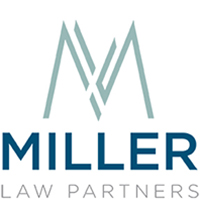Today, the Administration released helpful additional guidance for employers and small businesses who are attempting to navigate the challenges of the current coronavirus pandemic.
Specifically, the guidance sheds light on the small business relief and assistance authorized by the newly enacted Coronavirus Aid, Relief, and Economic Security Act (CARES Act) and the tax credits available to small businesses who provide paid leave under the new Families First Coronavirus Response Act (FFCRA).
Specifically, the new guidance provides:
- Information on how to apply for the Paycheck Protection Program (PPP) offered by the Small Business Administration (SBA) through the CARES Act; and
- A Fact Sheet explaining COVID-19 related tax credits authorized by the Families First Coronavirus Response Act (FFCRA).
Paycheck Protection Program Under The CARES Act
The PPP Information Sheet provides additional information to employers regarding how to apply, where to apply, and details of the available loans. Significantly, some of the terms of the PPP have been modified as compared to the text of the CARES Act. The PPP Information Sheet is available here.
Key Points:
- All loans will be subject to the same terms.
- Loan payments will be deferred for 6 months.
- Interest rates will be fixed at 0.5%.
- The loan term will be 2 years.
- No collateral or personal guarantee is required.
- Starting April 3, 2020, small businesses and sole proprietorships can apply for and receive loans to cover their payroll and other certain expenses through existing SBA lenders.
- Starting April 10, 2020, independent contractors and self-employed individuals can apply for and receive loans to cover their payroll and other certain expenses through existing SBA lenders.
- Other regulated lenders will be available to make these loans as soon as they are approved and enrolled in the program.
- Payroll documentation will be required to apply for the loan.
- Loans will be forgiven if:
- The loan proceeds are used to cover payroll costs, and most mortgage interest, rent, and utility costs over the 8-week period after the loan is made; and
- Employee and compensation levels are maintained.
- Proceeds from the loan may be used on:
- Payroll costs, including benefits;
- Interest on mortgage obligations incurred before February 15, 2020;
- Rent under lease agreements in force before February 15, 2020; and
- Utilities for which service began before February 15, 2020.
- Payroll costs include:
- Salary, wages, commissions, or tips (capped at $100,000 on an annualized basis for each employee);
- Employee benefits including costs for vacation, parental, family, medical, or sick leave; allowance for separation or dismissal; payments required for the provisions of group health care benefits including insurance premiums; and payment of any retirement benefit;
- State and local taxes assessed on compensation; and
- For a sole proprietor or independent contractor: wages, commissions, income, or net earnings from self-employment, capped at $100,000 on an annualized basis for each employee.
Tax Credits Under The FFCRA
The IRS released guidance providing an overview of the paid sick leave and paid family leave refundable credits under the FFCRA in its COVID-19 Related Tax Credits for Required Paid Leave Provided by Small and Midsize Businesses FAQs.
The guidance includes answers to an extensive list of FAQs including basic questions and information related to:
- Determining the Amount of the Tax Credit for Qualified Sick Leave Wages
- Determining the Amount of the Tax Credit for Qualified Family Leave Wages
- Determining the Amount of Allocable Qualified Health Plan Expenses
- How to Claim the Credits
- How Should an Employer Substantiate Eligibility for Tax Credits for Qualified Leave Wages?
- Periods of Time for Which Credits are Available
- Taxation and Deductibility of Tax Credits
- Interaction of FFCRA Tax Credits with Other Tax Credits
- Use of Third-Party Payers
- Other Issues
- Special Issues for Employees
- Specific Provisions Related to Self-Employed Individuals
Businesses are also encouraged to visit the IRS Coronavirus Tax Relief website here.

